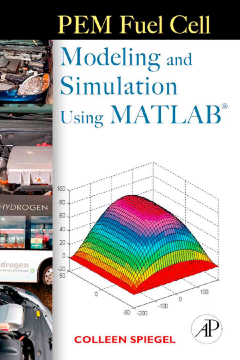
Additional Information
Book Details
Abstract
Although, the basic concept of a fuel cell is quite simple, creating new designs and optimizing their performance takes serious work and a mastery of several technical areas. PEM Fuel Cell Modeling and Simulation Using Matlab, provides design engineers and researchers with a valuable tool for understanding and overcoming barriers to designing and building the next generation of PEM Fuel Cells. With this book, engineers can test components and verify designs in the development phase, saving both time and money.
Easy to read and understand, this book provides design and modelling tips for fuel cell components such as: modelling proton exchange structure, catalyst layers, gas diffusion, fuel distribution structures, fuel cell stacks and fuel cell plant. This book includes design advice and MATLAB and FEMLAB codes for Fuel Cell types such as: polymer electrolyte, direct methanol and solid oxide fuel cells. This book also includes types for one, two and three dimensional modeling and two-phase flow phenomena and microfluidics.
*Modeling and design validation techniques
*Covers most types of Fuel Cell including SOFC
*MATLAB and FEMLAB modelling codes
*Translates basic phenomena into mathematical equations
"(Spiegel provides) Solid theoretical foundations with principles and modelling of Fuel Cells." (This book provides)"Strong theoretical foundation with good presentation and explanations."
Muhammad H. Rashid, Ph.D., Fellow IEEE (USA), Fellow IEE (UK)
"There are no books to my knowledge that describe how to design a fuel cells"..."The writing style suggests that this would be good book to read"... The foucs on modelling and simulating fuelcells is unique."
Dr. Bhansali is a professor of Electrical Engineering at the University of South Florida.
"Fuel cells are emerging power generation sources; their detailed modelling would be of interest to chemical, mechanical, and electrical engineers and students working in this area...."I believe more universities will begin offering courses on fuel cells in the near future. Modeling and simulation play an important role in such courses. Therefore, libraries and students are potential candidates for such a book."
Hashem Nehrir, Professor of Electrical Engineering, Montana State University, Bozeman
